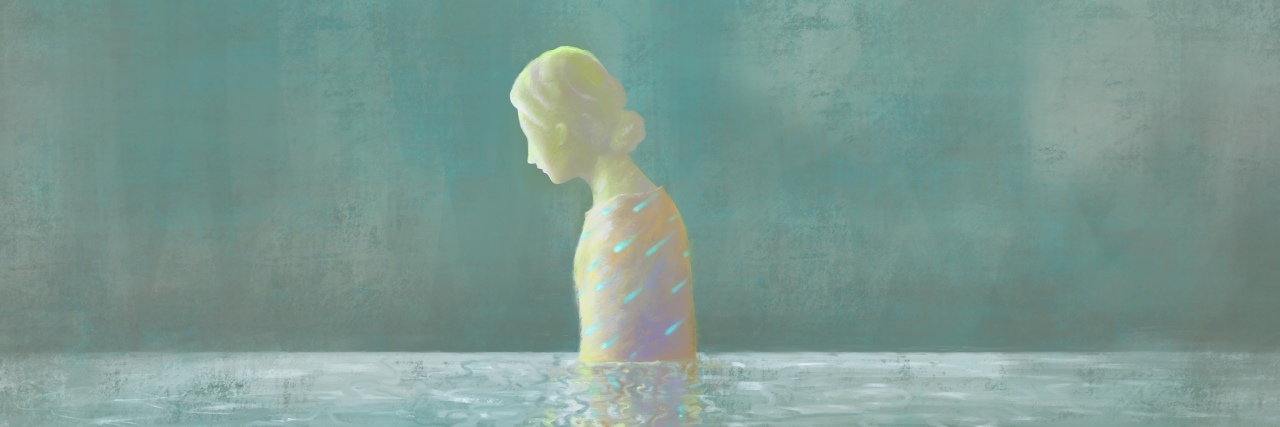There is a constant in the chronic illness community I have been thinking about a lot lately. The fact there are so many of us who get told over and over, all we need to do is _____. It may be to exercise more, eat better, get out more or simply just “do it,” whatever it is. We are inundated, even on our own support group pages, by people who have found the answer that will “cure” us. And let me assure you: there is no known cure for most of us or it would be in the news by now. But that is not what this is about anyway, so you can save your angry rants about celery juice and chakra detox for another day.
This is about the plain and simple advice we all get all the time. The tried and true advice that, deep down, we all know will help us in the long run, but is so hard for us to do. People stare at us when we try to explain the most common hurdles we face as if our pain and fatigue were as regular and easy to overcome as their most recent bad hair day. Which they aren’t. Not even remotely. But I’m not writing about that, either.
I’m writing about the reasons we don’t talk about. Those inner demons that hinder us from making simple changes we know will most likely help us. The negative voices that have built up over so many years of being sick. Voices that, if not literally heard in our minds, are felt in our being every time a new capability is lost. I’m talking about our fear, our embarrassment and the mistrust of our own bodies.
Let’s talk about fear. Can any of you out there, as an able-bodied person, truly understand the fear we face making any change in our daily routine when the outcome can be, literally, days in bed? I’m not just talking about attempting new and strenuous activities here. For some of us, changing a food can set us back. And this is something healthy people don’t seem to fully realize. It’s not that sticking to a new or better way of eating is tough or expensive — it’s quite literally a fight with our body to process. And we don’t always win. Many have immune systems that are so hypersensitive that what we can eat, is set — organic or not. So when we are deciding to make a change, understand how much we are facing physically. Even if the change we are thinking about isn’t in itself, physical.
Along with fear, there is also an aspect of embarrassment many of us deal with. You see, even though we understand why and how we got to where we are, most outsiders do not. Even when explained, most people without chronic illness will still see our problem as one of a “just do it” type. If we are overweight, diet; if we are tired, sleep more; if we are out of shape, exercise. And as explained, that is not the case. So when we finally do gain the courage to make a change, we are still often embarrassed to ask the people and professionals we need to for help. This can be especially true when help is needed from a trainer or physical therapist. We live every day in our bodies. We know how they act, react and most of all, how they look. Especially to others. And in today’s judgment-ridden society, how could we not expect to be judged by standards we no longer meet? And to be embarrassed by that, no matter what the reason? After all, we know what we were before the disease took over.
Lastly, beyond the fear and even the embarrassment, lies the innate distrust of our own bodies. This should be the easiest of all for those outside our community to understand, yet most do not. For this one, I will get personal. I live in an area that has a great little tree-lined block I can walk around that measures about half a mile. I’ve lived here 27 years. I do not walk the block anymore, though physically, I probably still can. I do not walk around my neighborhood block because I am afraid I will fall. Not that I fall often, mind you, but I experience sudden bouts of muscle weakness in my right leg that have led to enough falls that I am sufficiently scared. I have a cane, but that doesn’t help enough if I’m half a block away. I can only imagine the emotional distress of building myself up to start a change in my life only to find out my disease has progressed to the point that change is impossible. I know it is a possibility. Many of us do. And sometimes, it’s just easier not to try than to know you can no longer carry a jug of milk in one hand anymore.
So, I guess at the end of this all, what I am saying is nothing is ever as easy as it seems. And for those of us with chronic conditions, even the easiest of changes can be monumental. Maybe if more people understood that, we’d get far less “helpful” advice and far more help. Plus, maybe more of us would feel the pressure of judgment fall away. That in itself would allow more of us to get out there and try more things. And if I know one thing, it’s that the more you try, the more likely you are to find something that works for you.
Getty image by Jorm Sangsorn

